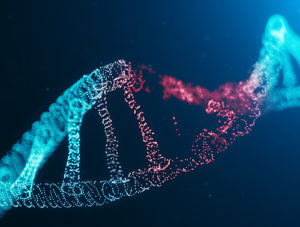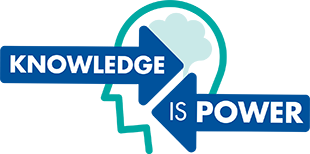
A GUIDE TO MUTATIONS

CHROMOSOME
Chromosomes are structures within cells that contain a person’s genes. Every person has 46 chromosomes. Each chromosome contains thousands of genes.

Gene
Genes, contained in chromosomes, are segments of deoxyribonucleic acid (DNA) that contain the code for making a specific protein that functions in one or more types of cells in the body.

MUTATIONS
Mutations occur when a gene is damaged and alters the genetic message.
Mutation testing is gaining importance in MDS. It is estimated that 90% of patients with MDS harbor one or more genetic mutations. Chromosomes contain several thousand genes. Genes are shorter sections of DNA. Each gene acts as a code or set of instructions for making a specific protein. These proteins control the cell’s activity, telling the cell what to do. Genes can become mutated (altered, faulty). In most cases, the cause of these mutations is not fully understood but we know that mutations accumulate as we age. Knowing which genes are mutated can help your doctor understand how you are likely to be affected by your MDS. In some cases, a mutated gene can be targeted to interrupt the abnormal production of blood cells common in MDS.
Mutations are currently identified by sequencing the DNA, commonly using a technique called “next generation sequencing” (NGS) using the material from a bone marrow or blood sample. Today, the mutation profile is used primarily for estimating prognosis. Several clinical trials are exploring the potential therapeutic benefit of targeting genes known to promote MDS. Importantly, the mutation profile may change over time. This is why it is important to re-characterize MDS at points of progression.
The International Working Group for Prognosis in MDS (IWG-PM) is working to better define individual molecular (genetic) abnormalities and their significance in MDS. There are many clinical trials focused on exploring the potential benefits of targeting genes known to cause and promote MDS. In some cases, the production of abnormal cells can be interrupted and lead to improved blood counts.
Your doctor may have ordered a DNA sequencing study to identify mutated genes in your MDS cells. This test can help confirm your diagnosis and provide information about which subtype of MDS you have. Some mutated genes are associated with lower risk disease while others may indicate greater risk. Mutations can potentially identify effective therapies to treat your disease. Knowing which genetic mutations are present in your MDS cells will open discussions with your healthcare provider about individualized risk assessment and treatment. Your genetic profile may change over time therefore it is important to re-characterize MDS at points of progression.
Some Commonly Mutated Genes in MDS
SF3B1
IDH1
DNMT3A
TET2
IDH2
TP53
ASXL1
RUNX1
SRSF2
U2AF1

